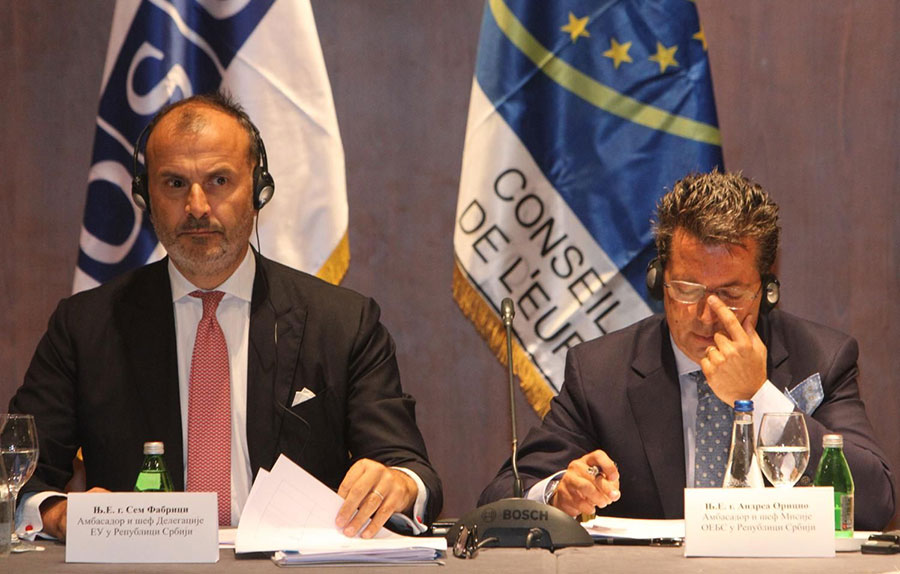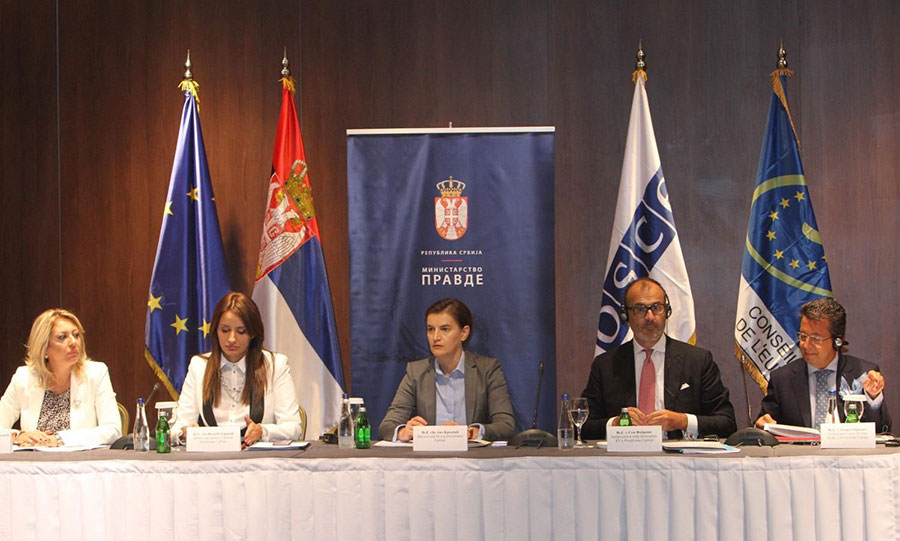Opening remarks of Ambassador Sem Fabrizi, Head of European Union Delegation to the Republic of Serbia
Roundtable on the Working Text on Amendments to the Constitution of the Republic of Serbia relating Judiciary
Check against delivery
Dear Prime Minister, Ministers (Kuburovic and Joksimovic), Ambassador Orizio, esteemed representatives of the international community, judges, prosecutors, and justice professionals.
The area of Rule of Law is one of the key priorities of the accession negotiations, also recognised in the new approach to enlargement negotiations where the fundamentals such as rule of law are tackled upfront – right from the beginning of the accession negotiations, as the reforms in this area take time to make and to become rooted in the society.
The importance of the Rule of Law was also recognised in the European Commission’s Western Balkans Strategy of February 2018, here the first flagship initiative covers Rule of Law area.
The accession negotiations in chapter 23 started July 2016 where Serbia committed to fulfil a set of benchmarks precisely defined in a joint negotiating position.
One of the key interim benchmarks for the judiciary is that “Serbia adopts new Constitutional provisions bearing in mind the Venice Commission recommendations, in line with the European Standards and based on a wide and inclusive consultation process.”

Fonet
The enlargement process is not only about the goal – accession to the EU, but even more so about the reform process to reach the goal. It is within this process that the crucial societal changes, that benefit citizens the most, are made.
Today we are here to observe one part of that important process addressing of one of the key priorities in the accession negotiations under chapter 23 – working towards ensuring independence of judiciary.
I welcome today’s opportunity for an inclusive discussion on the draft amendments to the constitution following the opinion of the Venice Commission which should be reflected accordingly also in the Constitutional law as an integral part of the Constitution and as the instrument by which these amendments will be implemented once approved.
Inclusive consultations were also recommended by the Venice Commission, as good and informed discussion can only lead to improved mutual understanding and trust, creating an opportunity for a final outcome which is ensuring successful implementation and buy in by all the parties.
I would thus like to encourage you all to review the government-sponsored draft in relation to these recommendations and to debate whether the specific choices match Serbian realities.
This consultation is different to all others that have taken place to date: Serbia and all its stakeholders can henceforth benefit from the Opinion of the Venice Commission that, on occasions, offer more than one ways ahead on the various issues.
As the Opinion of the Venice Commission mentions in its conclusions on page 20, changes should fully reflect the “need to meet the highest standards of compliance criteria with international best practice and the rule of law”.
It’s an opportunity Serbia should not waste and the Opinion of the Venice Commission can function as a catalyser for convergence on such an important issue such as the Constitution.
I hope that after todays’ debate we will also have more clarity on how the discussions will be reflected in the current draft and what are the next steps in the process.
Constitution is the highest legal act in a country which by the definition should bring all the people together to work towards a positive outcome for the benefit of the future generations.
Enlargement policy is about transformational process of society and we phasing that now.
I am therefore looking forward to today’s constructive and frank exchanges of views and an outcome which is inclusively endorsed by all stakeholders for the benefit of all Serbian citizens.




